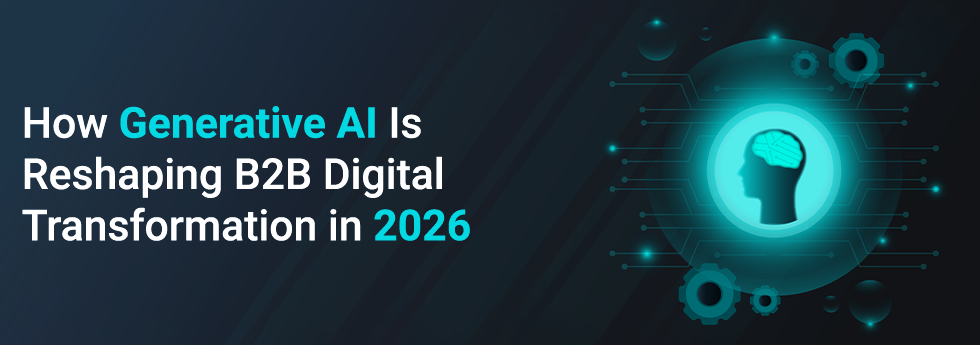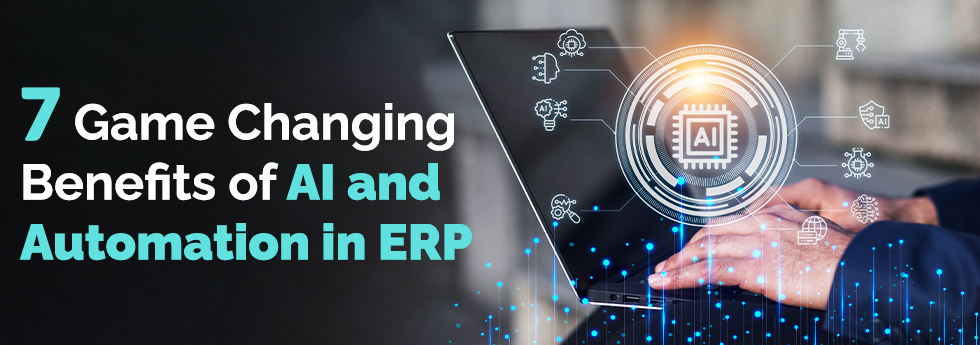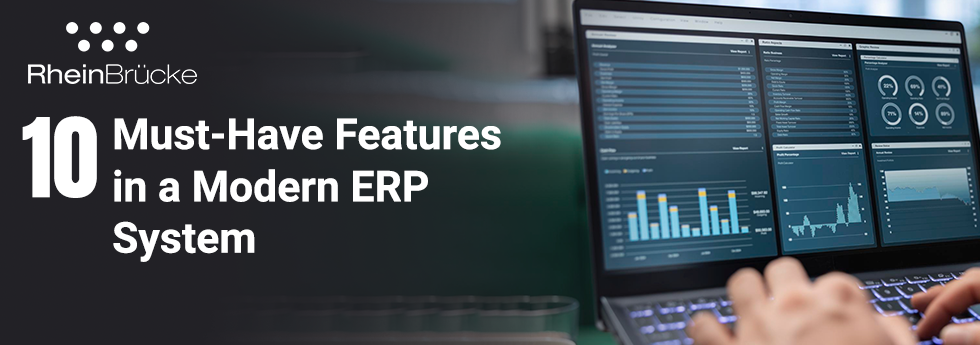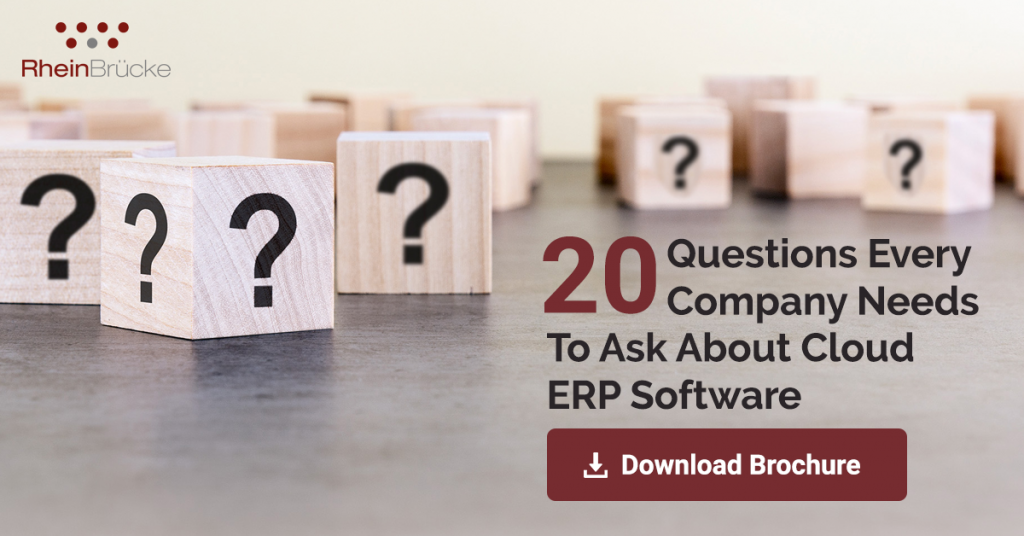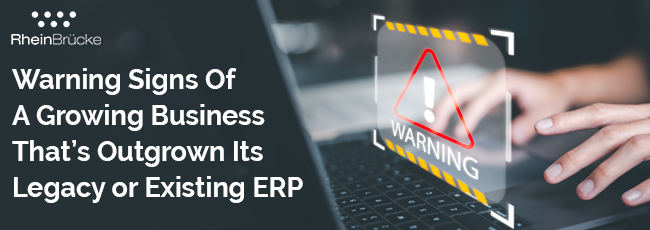
What Happens When You Ask: When Should I replace my ERP?
When posing this question to technology or an ERP vendor, the answer you are likely to receive would be “Now” or “In the Immediate Future” – a perspective that’s completely justifiable. Because technology innovation and the ERP landscape is evolving at a rapid pace. And whatever, your ERP or legacy system is, it would always be outdated when compared to the ERP systems available in the market. So, sometimes, it becomes challenging for growing enterprises to assess the right time and circumstances for replacing their ERP system.
As a result, the decision is either taken due to necessity arising out of some strategic and growth plans, or due to some emergency such as lack of upgrade or support from the existing vendor. While these reasons are good reasons to refresh an ERP, these are not the only ones. There are more critical indicators that suggest a need for changing your existing systems. Here are the top 10 warning signals that indicate your business has outgrown its existing ERP or legacy system. And it is time to consider an upgrade or change.
Top 10 Warning Signals to Consider Change or Upgrade of ERP
 Departments & Applications Working in Silos
Departments & Applications Working in Silos
When different departments are working in silos and are using separate software systems, it indicates that the business enterprise has disintegrated, inefficient processes and multiple versions of truth. It also leads to delays in execution, problems in coordination, and inadequate information & analytics.An effective ERP solves these problems by streamlining processes and providing real-time information flow across departments with one single business software solution.
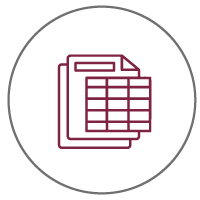 Excessive Use of Spreadsheets
Excessive Use of Spreadsheets
When employees are excessively using spreadsheets for carrying out their day-to-day work, then, it is time to consider an ERP. Excessive use of spreadsheets to manage business processes can lead to data inconsistency, lack of control, information islands, lack of information access, high business risk and poor business analytics.
 Dependence on Emails and IMs for Day-to-Day Work
Dependence on Emails and IMs for Day-to-Day Work
Similarly, if departments are excessively dependent on emails, phone calls and Instant messengers to manage day-to-day operations, it is a sure sign that there is no information flow between business functions. This signals the need to streamline processes and information flow with the help of an ERP for timely and accurate work execution.
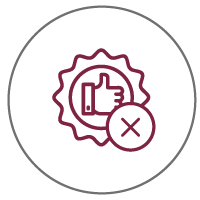 Absence of Industry’s Best Business Practices
Absence of Industry’s Best Business Practices
When the business is unable to implement the best business practices that are commonly followed by industry peers – practices like Total Quality Management(TQM), Supply Chain Integration, Lean Manufacturing, Process Compliance, Enterprise Project Management, Audit compliance etc (to name a few), then, it is time to consider an ERP solution. A robust ERP system comes with built-in processes and templates that help in implementing industry’s best business practices
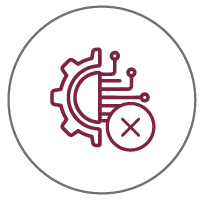 Unable to Use Technology for Business Improvement
Unable to Use Technology for Business Improvement
When your business is unable to leverage technology for the purpose of business improvement and driving digital transformation, then, it is time to upgrade your ERP. Modern ERPs use technologies such as mobile apps, e-commerce or EDI/ma- chine integration, Industry 4.0 tech trends such as IoT, Artificial Intelligence, Machine Learning, Advanced Analytics and Business Simulations, Integration of Supply chain with vendors and customers etc to facilitate digital transformation within the business.
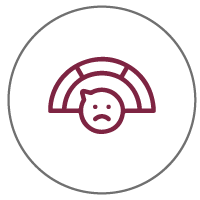 Customers Complaining about Deliveries & Quality
Customers Complaining about Deliveries & Quality
When customers express dissatisfaction about products and services, due to quality issues and delays in deliveries or execution, then, it is a sign that the enterprise needs to change to a good ERP solution. Typically, these issues happen when material and production planning, project management, or quality management is not done properly, leading to delays in client deliverables and rejection of goods shipped. An ERP solution can help in supply chain planning and quality control.
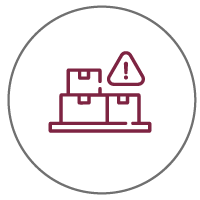 Excess or Shortage of Inventory or Resources
Excess or Shortage of Inventory or Resources
When the business consistently faces situations of excess or shortage of inventory or resources, it is a sign that the alignment between material planning, project or production planning and customer demand is off. As a result, the enterprise either faces excess or shortage of inventory or resources leading to increased costs of logistics or delays in delivery. Moreover, money locked in working capital will also lead to cash flow pressures. Such situations are signs that the business enterprise needs an ERP which can help in supply and demand planning and cash flow management.
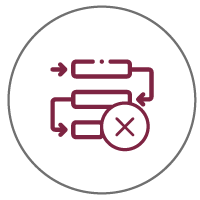 Unable to Streamline Costs of Production & Shipments
Unable to Streamline Costs of Production & Shipments
If an enterprise is unable to streamline and have control over cost of production, and shipments, then, it is a sign that an ERP may be required. An ERP helps in optimising the inventory and minimizing shipment costs with effective demand & supply planning. It reduces the cost and time to produce through capacity planning and resources management. A good ERP also reduces machine downtime & maintenance costs by efficient asset utilisation and plant maintenance strategies.
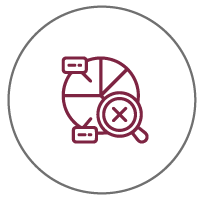 Inadequate Reporting and Analytics
Inadequate Reporting and Analytics
If the current ERP system lacks advanced reporting and analytics capabilities, it becomes difficult for the management to make informed data and insights. An effective ERP solution would provide the enterprises with various pre-built reports and dashboards, complete with integrated analytics data and insights. An effective ERP solution would provide the enterprises with data and insights.
An effective ERP solution would provide the enterprises with various pre-built reports and dashboards, complete with integrated analytics across the enterprise. A advanced ERP solution also provides the capability to integrate data across other systems and generate user defined KPIs, Dashboards and Reports across devices.
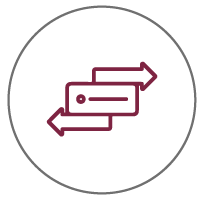 Request from Investors to Migrate to a New ERP
Request from Investors to Migrate to a New ERP
Another compelling reason to migrate to a robust ERP is when the investor’s investment decision depends on implementation of a new ERP system. Investors, whether they are banks, Equity Investors or Venture Capitalists, get better confidence in an enterprise if they have a good ERP system as a proof of commitment to efficient operations, processes and strategic management
Conclusion
All the factors mentioned above are critical signs that an organization needs a refresh of their legacy platform or ERP solution. Failing to acknowledge and address these warning signals could ultimately lead to detrimental outcomes including customer attrition, increased employee turnover, reduction of corporate value, susceptibility to competition and a decline turnover & profitability.
One of the possible solutions to these warning signals lies in the adoption of a good ERP, like Epicor ERP, that can help address the above problems and issues. To know more about Epicor and RheinBrücke (implementation partner of Epicor ERP), please visit www.rheincs.com
Ready to transform your business with Epicor ERP? Contact RheinBrücke today to stay ahead of the curve in 2025 and beyond

